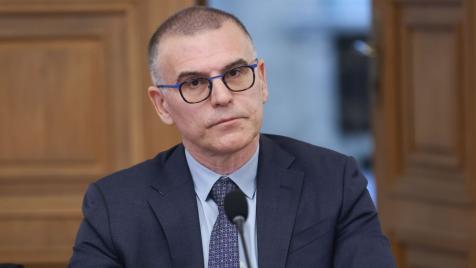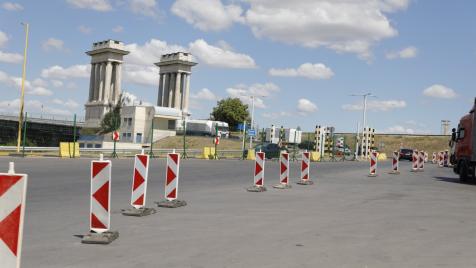“Critical moment”: Budget 2025 leaves no room for investments in Bulgaria
Bulgaria has already begun to reap the benefits of the upcoming introduction of the euro
© ECONOMIC.BG / BTA
The state budget for 2025, with its planned increases in wage costs, which are fueling inflation, but lacking structural policies, leaves no room for investment. This was stated by Lyubomir Datsov, member of the Fiscal Council, during a conference in Sofia. He made the comment with the proviso that he was expressing his personal opinion and not that of the Fiscal Council as an organization.
According to Datsov, this year the government will have to make several important decisions about the budget, dictated by the “refusal to implement structural policies.”
When the pace of reform has not been fast enough over the past 20 years, a critical moment comes, and we have now reached it. At present, in order to implement the budget, there is no fiscal space for investment," said the finance expert.
He explained that public investment as a share of GDP is currently 18-20%, and in order to achieve sustainable economic growth of over 4%, this level should be 27-28%.
The panel in which Datsov spoke was dedicated to Bulgaria's upcoming entry into the eurozone and the impact this will have on prices, investment, and fiscal policy.
Various economists agreed that the introduction of the single European currency alone will not solve the problems of the Bulgarian economy and that it is not a panacea.
Time for fiscal discipline
The cause-and-effect relationship is not 1:1, the euro is only one step of many that we must take to build a more secure economy by continuing with sustainable policies and much-needed reforms," said Atanas Pekanov, former deputy prime minister and currently an economist at the Austrian Institute for Economic Research (WIFO).
He commented that joining the eurozone should support foreign direct investment (FDI) in the country because international investors “certainly support this step” and see security, which therefore improves our image.
Pekanov predicted that in the coming years, Bulgaria may have to allocate more of its own resources to investment because there will be “more and more conditions and difficulties” in the European budget.
Income and living standards can improve, but only if we take the right steps. Empirically, we see this in other countries similar to Bulgaria—in the Baltic states, purchasing power has risen everywhere in the years since joining the eurozone," the economist said.
Similar to the results of the analysis by the Fiscal Council, Pekanov also predicted an upgrade of the country's credit rating. His opinion was shared by Desislava Nikolova, senior economist at the World Bank.
However, she warned that consideration should be given to budget consolidation, or in other words, to the effectiveness and efficiency of spending, i.e. how Bulgaria can achieve all its goals in a cost-effective manner. “The next few years are the right time to put our public finances in order,” Nikolova urged.
She sees an opportunity for this in the tax system, which she said hides “a lot of potential for increasing revenue” without changing rates. The idea is to segment taxpayers and see where the biggest risks are for compliance with tax legislation on VAT.
Another opportunity is public procurement.
One billion levs could be saved if public procurement were conducted in a way that ensured maximum participation, rather than just one supplier, and if the deadlines were extended and optimized, which is an extremely conservative estimate," Nikolova said.
Is Bulgaria losing control with the abolition of the lev?
In his presentation, Pekanov also touched on the replacement of the lev with the euro, a process that many Bulgarians believe is causing the country to lose some of its sovereignty.
The economist said that the introduction of the currency board was an important step for Bulgaria's stability, but it was also the introduction of a “quasi-colonial regime in which you give complete control over your monetary policy to someone outside the country.”
Now the central bank is learning what interest rates to apply, and by participating in the decisions, it will gain sovereignty," Pekanov said.
Benefits already reaped
According to Nikolova, Bulgaria is already reaping the benefits of the euro. As an example, she cited last week's internal loan of BGN 300 million from the Ministry of Finance (MF), which achieved a lower yield. At that time, it was 3.06%, while for the previous loan of the same amount it was 3.51%.
This means that the state pays less to investors (i.e., a cheaper loan), and on the other hand, it is a signal that confidence in the solvency of the Bulgarian state is growing.
These 45 basis points lower yield are not insignificant at all; in my opinion, the effect of the upcoming accession to the eurozone is already being felt," Nikolova said.
This text was translated by DeepL translator.

 Simona Gotsova
Simona Gotsova 




